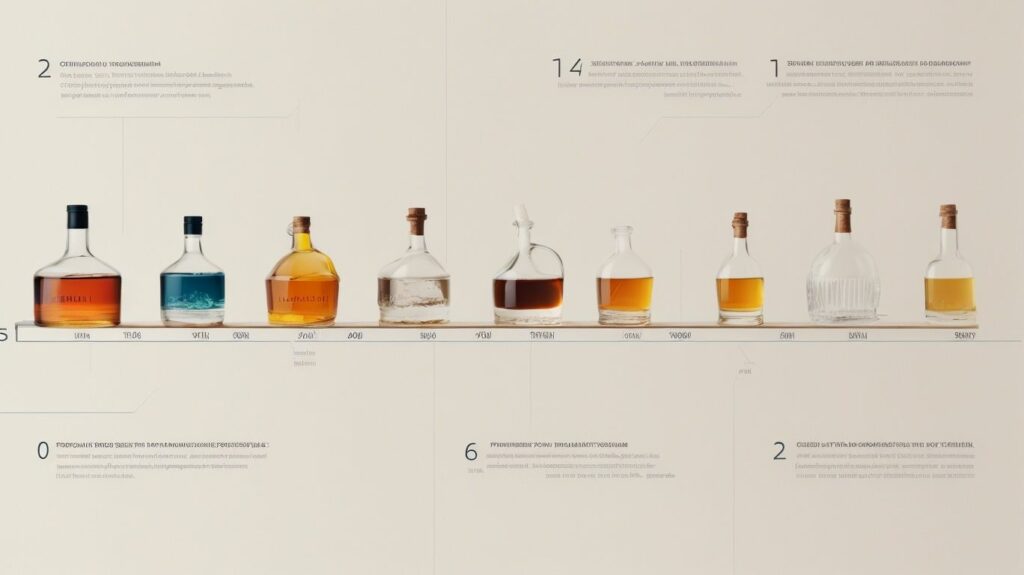20+ Years Experience
Specialist Alcohol Help

No one wants to see their loved ones suffer, but when it comes to alcohol addiction, it can be challenging to know how to help.
In this blog post, we delve into the complexities of “how to help an alcoholic”, breaking down the signs and symptoms, and providing a plan of action to support your loved one on their journey to recovery.
By the end of this post, you will be able to recognise the signs of a drinking problem and feel confident in taking the necessary steps to help your loved one regain control of their life.
Recognising alcohol addiction in a loved one can be a difficult and emotional task, but it is crucial to address the issue early to prevent further damage to their health and relationships.
Alcohol addiction, or alcohol use disorder, is a chronic disease characterised by an uncontrollable urge to consume alcohol despite the negative consequences it brings to one’s life.
Identifying alcohol addiction involves observing behavioural indicators, physical symptoms, and the emotional impact of their drinking habits.
One of the first signs of alcohol addiction is a change in behaviour. This may include mood fluctuations, deceitfulness, concealing drinking or not consuming alcohol, more time drinking more alcohol, and neglecting obligations.
A person with alcohol use disorder, also known as alcohol dependence, may face job loss or disciplinary action due to their alcohol misuse, which can also affect family members and relationships.
As their addiction progresses, they may drink increasing amounts of alcohol, experience cravings or withdrawal symptoms, and not exhibit signs of intoxication after consuming large amounts of alcohol.
Being aware of these behavioural indicators is essential in recognising a potential drinking problem and providing the necessary support.
Physical symptoms are another telling sign of alcohol addiction. Individuals with alcohol use disorder may develop a high tolerance for alcohol, which means they need to consume larger quantities of alcohol to achieve the same effect, making it difficult to stop drinking.
Withdrawal symptoms problem drinkers such as nausea, sweating, shakiness, and anxiety may occur when they start drinking or they try to quit drinking too much alcohol affects them or reduce their alcohol consumption.
Additionally, long-term alcohol abuse can lead to various health issues, including liver damage, heart disease, and an increased risk of certain types of cancer.
By recognising these physical symptoms, you can help your loved one seek the appropriate addiction treatment to mitigate these risks and improve their overall health.
Alcohol addiction can have a profound emotional impact not only on the individual struggling with the addiction but also on their loved ones.
The emotional repercussions of alcohol use disorders may include difficulty with relationships, depression, anger, anxiety, a decline in self-esteem, and many other mental health problems.
Understanding how alcohol affects both the person struggling and their family members is crucial in addressing alcohol problems.
As a family member or friend of someone with alcohol addiction, you might experience feelings of guilt, anxiety, and helplessness as you watch your loved one struggle.
To manage the emotional effects of alcohol addiction, it is essential to seek support from family and friends, engage in self-care activities, and establish boundaries.
By taking care of your own emotional well-being, you will be better equipped to support your loved one in their journey to recovery.
Once you have recognised the signs of alcohol addiction in your loved one, the next step is to initiate a conversation about their drinking habits.
This conversation is vital, as it provides an opportunity to express your concerns and demonstrate your support and willingness to help the ongoing process.
It’s important to note that discussing alcohol consumption may evoke a range of responses such as anger, defensiveness, aggression, or denial.
In the following sections, we will discuss strategies to effectively approach this conversation and provide support for your loved one’s addiction and the ongoing process of seeking treatment.
The timing and setting for this conversation are crucial. When discussing your loved one’s drinking habits, it is recommended to have an honest conversation only when the individual is sober and in a tranquil frame of mind. Selecting a calm and private setting to express your concerns about their drinking habits is also essential.
Be prepared for potential risks associated with this conversation, such as triggering a relapse or causing the loved one to become defensive and refuse help. Having a plan to handle these risks will help ensure a productive and supportive discussion.
When expressing your concerns, it is important to be mindful of your language and approach. Be understanding and empathetic, as this will help create a supportive environment for your loved one to open up about their struggles.
Offer resources and assistance, such as information about alcohol addiction, treatment options, and support groups in your area.
This may include contacting a helpline, consulting a physician or counsellor, enrolling in treatment, or attending a group meeting.
Remember that your loved one may not be ready to accept help or address their drinking problem immediately, so it is essential to remain patient and supportive throughout the process.
Establishing boundaries is a crucial aspect of supporting your loved one while protecting your own well-being and mental health.
Be clear about your expectations and limits regarding one about their drinking behaviour, and refuse to enable or participate in one about their own drinking problem or destructive behaviours. Prioritise self-care, establish consequences for breaking boundaries and follow through with them.
Additionally, seek support from professionals or support groups to help address the challenges associated with supporting an alcoholic.
Setting boundaries not only protects you but also helps your loved one understand the impact of their addiction on others and encourages them to seek help.
Once you have initiated a conversation about your loved one’s drinking habits and established boundaries, it’s time to explore treatment options for alcohol addiction.
There are several paths to recovery, and selecting the most suitable treatment option for your loved one may involve seeking professional help, self-help strategies, and joining support groups.
In the following sections, we will delve deeper into each of these treatment options and provide guidance on how to choose the best approach for your loved one.
Professional help is often the first step in treating alcohol addiction, as it provides a comprehensive approach to recovery.
This may be intensive treatment and involve primary care evaluations, medication, therapy, and residential rehab programs.
A primary care doctor can evaluate drinking patterns, assess overall health and any related conditions, and alcohol problems, and provide referrals to appropriate treatment services.
Residential rehab programs offer round-the-clock care, medically assisted alcohol detox, intensive group and individual therapy, and comprehensive aftercare for drug and alcohol issues.
Seeking professional help has numerous advantages, such as identifying the underlying causes of alcohol use, restoring strained relationships, acquiring skills to stop or decrease drinking, and learning how to cope with drinking triggers that might lead to relapse.
In addition to professional help, self-help strategies can play a significant role in supporting recovery from alcohol addiction. These strategies may include setting new limits for drinking, pursuing new interests that do not always involve drinking alcohol, and finding alternative social groups.
By engaging in new activities and interests, your loved one can develop healthier coping mechanisms and build a support system that encourages sobriety.
While self-help strategies alone may not be sufficient for everyone, they can complement professional treatment and provide additional tools to maintain long-term recovery.
Support groups, such as Alcoholics Anonymous (AA), can provide a network of understanding and encouragement for those struggling with addiction.
These groups offer a non-judgmental environment where individuals can share their experiences, learn from others, and develop a sense of accountability in their recovery process.
Many support groups also offer resources and guidance for family members and friends impacted by a loved one’s alcohol abuse, such as Al-Anon and Alateen.
By attending support groups, both the individual recovering from addiction and their loved ones can benefit from mutual support and encouragement, improving the chances of long-term recovery.
Supporting your loved one’s recovery journey is a crucial aspect of helping them overcome alcohol abuse and addiction. This involves encouraging positive changes, understanding relapse risks, and promoting a healthy lifestyle.
In the following sections, we will discuss strategies to help your loved one maintain their sobriety, prevent relapse, and build a happier, healthier life.
To support your loved one’s recovery, encourage them to engage in new hobbies, participate in non-alcohol-related social activities, and address underlying issues contributing to their addiction.
By replacing drinking with healthier alternatives, your loved one can develop new coping mechanisms to manage stress and resist alcohol cravings.
Encourage financial support for the person to discover alternative methods of managing life’s challenges and recovering from disappointments without relying on alcohol.
This will help them build a strong foundation for long-term recovery and prevent relapse.
Relapse is a common part of the recovery process, with an estimated 66% of individuals who undergo treatment for an alcohol use disorder experiencing relapse at some point in their lives.
It is essential to understand the potential triggers for relapse, such as exposure to stressful situations, temptations, and harmful relationships or environments.
By being aware of these risks, you can offer ongoing support and encouragement to your loved one, helping them stay on track with their recovery and avoiding the pitfalls of relapse.
A healthy lifestyle is key to maintaining sobriety and overall well-being. Encourage your loved one to engage in regular exercise, and stress-relieving activities, and maintain a balanced diet.
Physical activity can help reduce cravings and improve overall physical and mental health, while stress management techniques, such as yoga and meditation, can assist in coping with difficult emotions.
By promoting a healthy lifestyle, you can support your loved one’s recovery and help them build a strong foundation for lasting sobriety.
While it is essential to support your loved one in their recovery, it is equally important to care for yourself. Dealing with a loved one’s alcohol addiction can be emotionally and physically challenging, making it crucial to seek support for yourself, practice self-care, and establish boundaries.
In the following sections, we will discuss strategies to help you maintain your own well-being while supporting your loved one through their recovery, with the guidance of the mental health services administration.
As a family member or friend of someone with alcohol addiction, it is vital to seek support from other family members and others who understand your situation.
This may include talking honestly with friends and family, joining a support group specifically designed for loved ones of alcoholics, such as Al-Anon or Alateen, or engaging in individual therapy.
By seeking support for yourself, you can better cope with the challenges of supporting an alcoholic loved one and ensure your own well-being is not neglected.
In addition to seeking support, it is important to prioritise self-care when dealing with a loved one’s alcohol addiction.
This may involve setting aside time for relaxation, engaging in activities you enjoy when spending time, and maintaining your own physical and mental health.
By taking care of yourself, you and your whole family will be better equipped to provide the support your loved one needs throughout their recovery journey.
Establishing boundaries is essential for preserving your own well-being while supporting an alcoholic loved one. Be clear about what behaviours are unacceptable and the consequences for crossing these boundaries.
This may include refusing to engage in or enable their destructive behaviours, prioritising their own self-care, and seeking support from professionals or support groups.
By setting boundaries, you can protect yourself and provide the best possible support for your loved ones as they navigate the recovery process.
Encourage healthy activities instead of binge drinking, provide resources and support such as counselling and attending group meetings, and be willing to offer a ride.
Offer good communication and understanding to talk honestly about why the person is drinking problem drinks.
Reach out for help; there is no shame in asking for support. Treatment and self-help programs can give you the strength to overcome your addiction and live a happier, healthier life.
Don’t be afraid to talk honestly take the first step to get alcohol help to stay sober and stop drinking alcohol.
Alcoholism is a term used to describe problem drinking that is severe enough to cause physical and emotional harm.
It is characterised by alcohol dependence, which is the body’s inability to stop drinking alcohol, alcohol withdrawal as well as alcohol cravings.
Alcohol dependence is a serious condition that can have a significant impact on a person’s life.
Alcohol abuse can lead to physical and even mental disorders, mental and other health issues, problems, financial difficulties, and relationship issues. It is important that it is important.
Signs of alcohol misuse or addiction can include erratic behaviour, physical signs, and emotional changes.
Look out for these in your loved one as they may be indicators of alcohol misuse or addiction.
Treatment for alcohol addiction can include professional help, self-help strategies, and support groups –
All of these can work together to help an individual in their recovery journey.
In conclusion, supporting a loved one through alcohol addiction requires compassion, understanding, and perseverance.
By recognising the signs of addiction, initiating a conversation about their drinking, exploring treatment options, and providing ongoing support, you can help your loved one regain control of their life and achieve lasting sobriety.
Remember to also prioritise your own well-being throughout this process, seeking support and practising self-care to ensure you can continue to provide the best possible support to your loved one.
There are a range of other services that we can provide. Have a look at the list below for more information:











































































































































We Aim To Reply To All Enquiries With-in 24-Hours